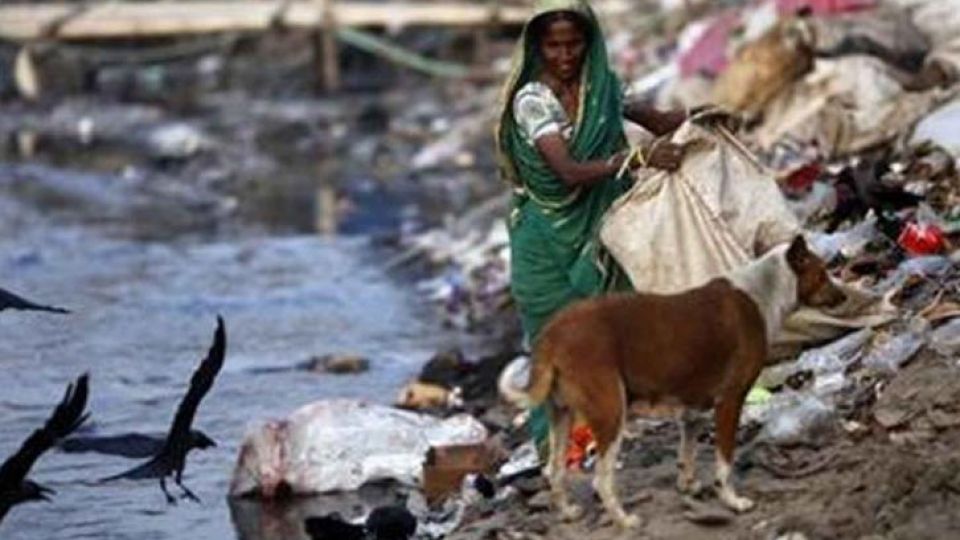June 30, 2022
DHAKA – The COVID-19 pandemic hit us at a time when anthropogenic climate change is threatening to destabilise our lives, global inequality is at an extreme high, fascism is on the rise, and an unprecedented 89.3 million people are forcibly displaced worldwide. As we wake up from the nightmare of COVID-19 pandemic, is the former world really the one we want to return to? The widespread disruption of our lives as a result of the coronavirus pandemic compels us to rethink the flaws in our social and economic systems while comprehending the magnitude of a crisis that waded through national and international borders.
Governments and policymakers all around the world are examining ways to deal with the pandemic-inflicted devastation, considering recovery measures, and probing for different means to return to normalcy. However, failing to take the existing design flaws seriously and returning to the old ways should no longer be an option. The prevalent paradigm of our era with its sole focus on perpetual growth disregards many aspects of the human condition and the limitations of our biosphere. It now depends on us whether this once-in-a-century pandemic will be a once-in-a-generation juncture for a concrete shift from our flawed economic ideals.
The current dominant narrative linking perpetual growth with prosperity is deeply rooted as a foundational idea in the mindsets of our policymakers. From finance ministries to central banks, and think tanks to policy institutes, the primary focus remains on economic expansion with Gross Domestic Product (GDP) being the yardstick for measurement. The concept of economic growth is not irrelevant for a country but when we unduly focus on only one yardstick to assess our complex and intertwined society, we lose perspective of what the yardstick is supposed to measure. Growth is only supposed to be a means to an end, and not the end itself.
Even though the growth approach has played a role in improving quality of life and alleviating poverty, it does not signify that this method is the best one or that all the successes in poverty reduction can be attributed to economic growth policies. In the article titled, “How Poverty Ends: The Many Paths to Progress – and Why They Might Not Continue,” the 2019 Economics Nobel prize-winning duo, Esther Duflo and Abhijeet Banerjee write, “Looking back, it is clear that many of the important successes of the last few decades were the result not of economic growth but of a direct focus on improving particular outcomes, even in countries that were and have remained very poor.”
Creating targeted intervention with measurable objectives and focusing on precise aspects such as health, education, equality of opportunity, sustainability, innovation, and freedom of speech can go a long way in improving well-being without compromising other areas of societal development. Duflo and Banerjee conclude, “In the absence of a magic potion for development, the best way to profoundly transform millions of lives is not to try in vain to boost growth. It is to focus squarely on the thing that growth is supposed to improve: the well-being of the poor.”
In the calculation of GDP, environmental degradation, standard of living, or inequality are not taken into account, as methods of measurement solely focus on output, expenditure, and income. GDP only conveys the average income and that is not a reflection of what the majority is earning or how they are living. A few outliers and even one person, with a massive paycheck, can skew the GDP showing a high per capita income. GDP is also blind to the state of our natural world. The Guardian’s economic correspondent, Richard Partington, discusses this in his article by pointing out, “After the Exxon Valdez disaster in 1989, the oil spill showed up as a net economic gain because the money spent on the clean-up effort boosted US GDP – despite the damage to Alaska’s waters.” The true costs of such events, which are harming the social and economic health of a nation, are not reflected in GDP.
The shallowness of perpetual economic growth as the primary objective of our economies has long been unearthed. And yet, alternative frameworks for progress are not pursued due to intellectual inertia coupled with a lack of political ambition. In their report “Mismeasuring Our Lives: Why GDP Doesn’t Add Up”, a commission of three renowned economists, Amartya Sen, Joseph Stiglitz, and Jean-Paul Fitoussi, remark, “Those attempting to guide the economy are like pilots steering a course without a reliable compass” When policy decisions are based on an ill-designed metric for economic performance and progress, the outcomes are often detrimental.
So, what possible alternative approach can countries pursue to assess progress and development? A single measure that summarises the economic performance and social progress would be great, but according to Stiglitz, “too much valuable information is lost when we form an aggregate.” And therefore, the commission concludes, “each nation needs a dashboard – a set of numbers that would convey essential diagnostics of its society and economy and help steer them.” Policymakers and civil society need to move away from “GDP thinking” and pay attention to quality-of-life indicators such as health, education, equality of opportunity, environment, physical security, and economic protection.
It is now a societal imperative that we look beyond the narrow lens provided to us by mainstream policy discourse and seriously consider progress metrics that are more inclusive than the simplistic measure of GDP. We can no longer undermine the effects of our actions on the ecology, and neither can we continue disregarding the massive disparities in our society. As the first step to moving forward, we need to recognise the fault lines in our societal priorities. And as the next, we need to modify our current ways to value the end that is well-being over the means that is perpetual growth. The future now depends on how we address the pandemic recovery, and whether we choose to settle on band-aid solutions or permanently change the rules.


